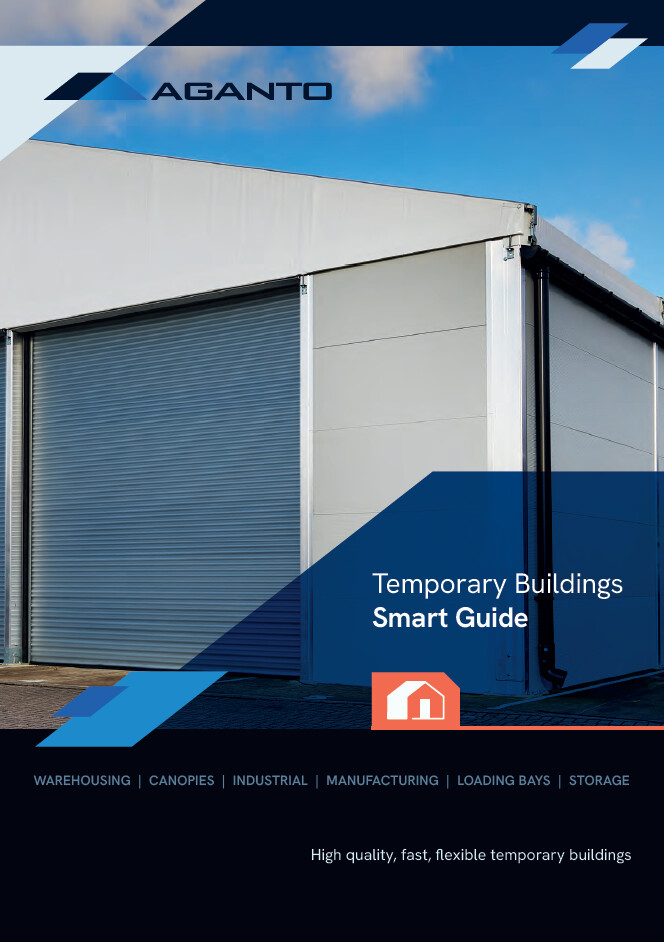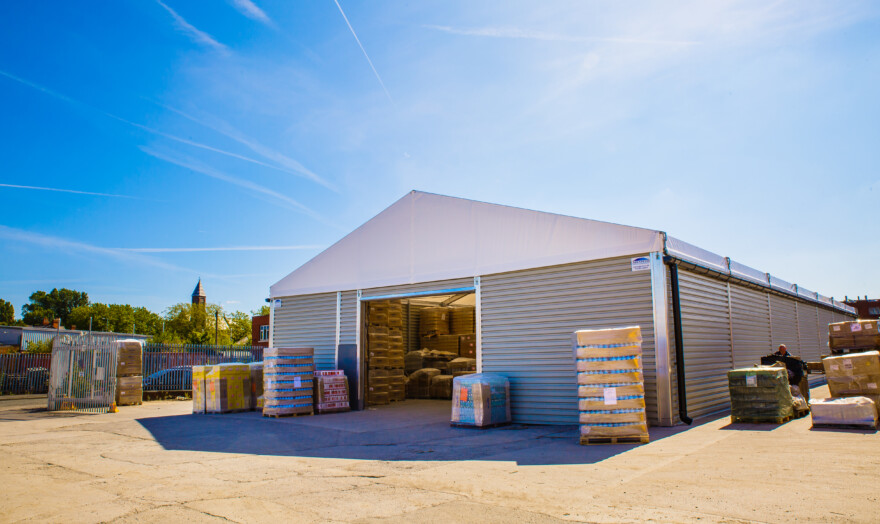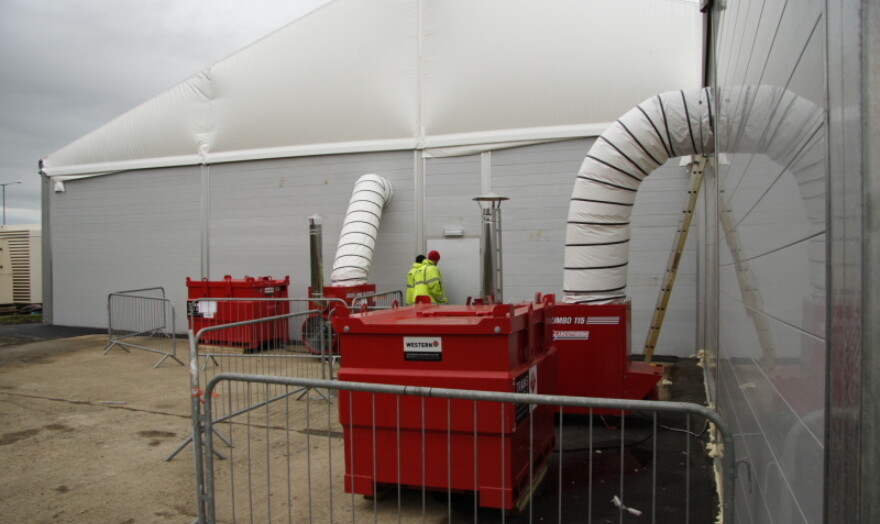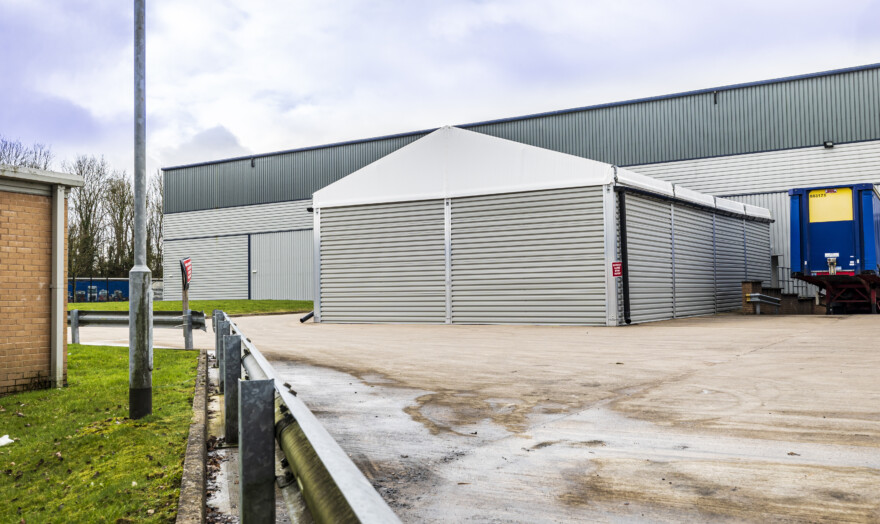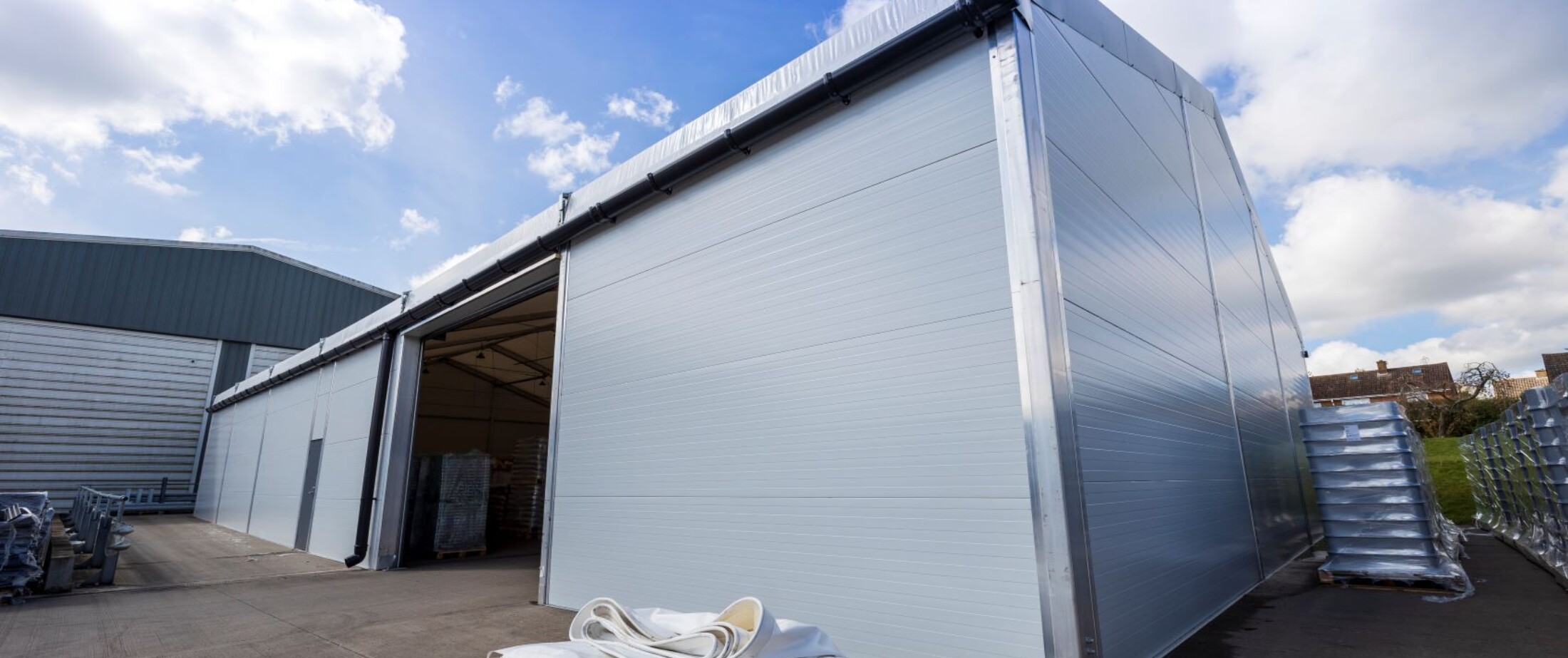
2 min read
Insulated vs non-insulated temporary warehouses
One of the big advantages for businesses using temporary warehouse buildings to create extra storage space for their operations is the ability to customise the structure to best suit the needs of the business. One of the key customisation options we offer at Aganto is insulation.
If you’re considering installing a temporary building on your site, you may be wondering if you need to include insulated cladding on your building. In this article, we help you decide whether an insulated or non-insulated temporary structure is right for you.
Why might you need insulation?
If your goods need to be stored in a climate-controlled environment, then you would need insulation in your temporary warehouse space in order to allow you to store products that require specific temperature or humidity conditions. If your products are at higher risk of damage the layer of insulation in an insulated warehouse can provide added protection from the elements. It is a good idea to consider installing insulation if you regularly have employees working in your temporary warehouse structure as it can reduce the impact of prolonged exposure to cold weather on their health and productivity.
Is insulation always necessary?
This really depends on what you plan to use your building for. If your goods are less temperature sensitive and don’t need to be kept at a constant temperature, then insulation is not always required. For industries dealing with non-perishable items, raw materials, or certain manufacturing processes, a non-insulated structure might be a more practical and cost-effective choice. The necessity of insulation depends on a careful assessment of specific factors such as the nature of goods and your operational requirements.
Optimised Thermal Performance: Insulated temporary buildings are designed with materials that provide excellent thermal insulation. This means they can effectively regulate internal temperatures, reducing the need for excessive heating or cooling. This results in lower energy consumption and a smaller carbon footprint, contributing to environmental sustainability.
Moisture Resistance: Insulated buildings incorporate materials that provide resistance against moisture. This is essential for protecting goods and equipment from the damaging effects of dampness or humidity. Moisture control is especially critical for industries where the risk of corrosion or spoilage exists.
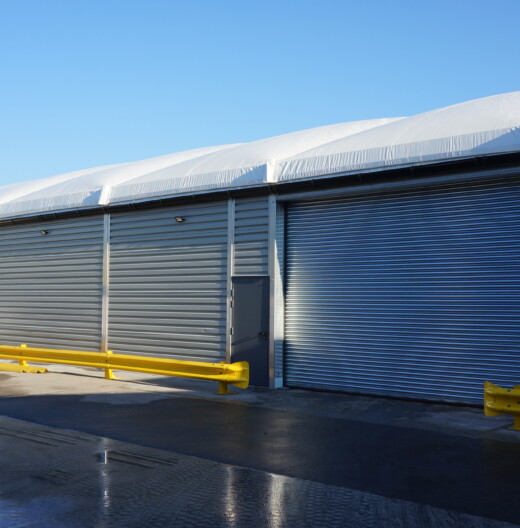
Durable Construction: Our insulated temporary buildings are constructed with durable materials that withstand various weather conditions and external factors. This durability translates to a longer lifespan, reducing the frequency of repairs and maintenance activities. This can lead to cost savings over time as there will be less investment to fix typical wear and tear.
Temperature Control: Insulation not only regulates internal temperatures but also prevents extreme temperature fluctuations. This is particularly crucial for industries that deal with sensitive products, such as pharmaceuticals or certain types of food. Maintaining a consistent and controlled environment helps to protect the quality and integrity of goods.
Temperature-insensitive goods: Non-insulated temporary buildings are well-suited for industries dealing with goods that are not sensitive to temperature fluctuations. This includes materials, equipment, or products that do not require a controlled environment. Industries such as construction, warehousing of non-perishable goods, or manufacturing of certain raw materials can benefit from the straightforward and economical nature of non-insulated structures.
Flexible Design: The design flexibility of non-insulated structures allows for the creation of open-sided or partially enclosed canopies. This versatility is beneficial for businesses with varying loading and unloading requirements, offering a tailored solution that meets specific operational needs.
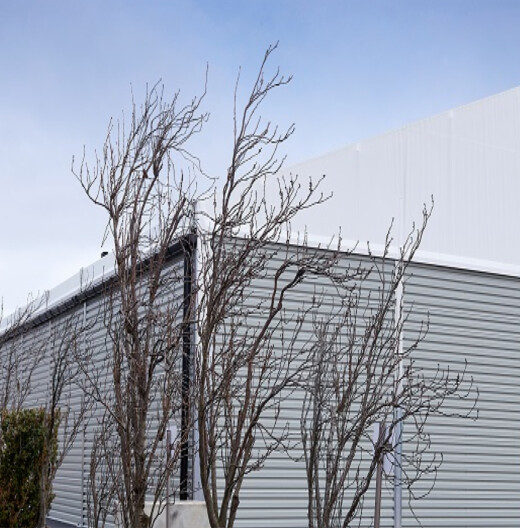
Rapid Deployment:
Non-insulated temporary structures are known for their quick and easy installation. They provide a swift solution to the immediate need for additional on-site space, whether for storage, production, or other purposes. This rapid deployment is particularly valuable for businesses facing sudden increases in demand or those undergoing construction or renovation projects.
Cost-Effectiveness: The simplicity of design and construction of non-insulated structures results in lower upfront costs compared to traditional buildings. This cost-effectiveness makes them an attractive option for businesses seeking a temporary or budget-friendly solution without compromising on functionality.
What types of insulation can we offer?
At Aganto we can offer a wide range of insulation options including both standard cladding and varying levels of insulated sandwich panel cladding on our buildings for when the temperature inside the temporary structure needs to remain warm or cool. Buildings can be fully insulated or partly insulated to suit, and panels can be switched easily if required.
If you want to discuss cladding options for your temporary storage building or just need help deciding if your building needs insulation why not get in touch with Aganto’s temporary building experts? We can offer a free site visit to make sure you get the right temporary solution for your business.
Talk with our experts to kick-start your project or arrange a site inspection.
Fill out your project details, and we'll respond to your enquiry with a quote.
